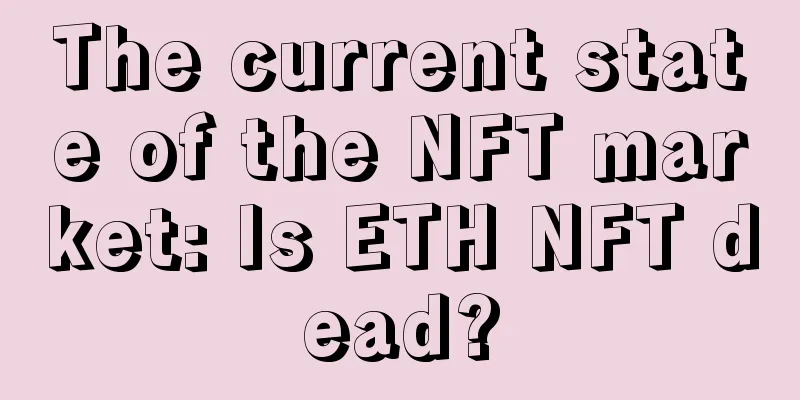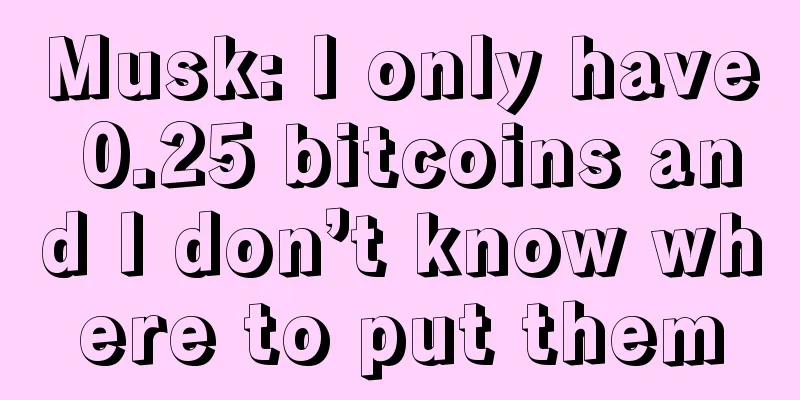Refuting the Financial Times article: Bitcoin is not worthless

|
It seems to have become a fixed pattern: whenever the price of Bitcoin rises, Keynesians will start to spread negative news about Bitcoin. At the end of 2013, when the price of Bitcoin hit an all-time high, Paul Krugman, a blogger for the New York Times, said that Bitcoin was evil without any evidence. Krugman was criticized for his negative comments on Bitcoin and has not yet recovered from the blow of the soaring price of the currency, so Financial Times reporter Dan McCrum took over his post. As a journalist who is supposed to popularize knowledge for readers, McCrum did not choose to adopt a rational narrative approach. Instead, he directly pointed out that even if the price of Bitcoin exceeds $1,000, its real value is still zero. The reason is nothing more than that Bitcoin is not worth mentioning compared to the world's GDP. Even if its market value of $16 billion reaches trillions of dollars, Bitcoin is still worthless if billions of transactions cannot be guaranteed every day. In the article, he repeated some old-fashioned views and concluded that Bitcoin is a Ponzi scheme because the rise in the price of the currency requires more participants to promote it. The operating model of Bitcoin is indeed different from the movement of stock prices. Stocks will rise due to the injection of new funds, creating new prices by saving costs or improving efficiency, thereby incentivizing more investors to participate, until the stock is replaced by a new stock with more potential. McCrum doesn’t know much about Bitcoin, but some of the points he made do get to the heart of the matter. He said:
Over the past few months, the exchange rate of the US dollar against the British pound has doubled; the price of the RMB has fallen a lot; the Venezuelan Bolivar is almost worthless; the Argentine Peso has fallen by nearly 40%; although India has adopted strict regulatory measures, the price of legal currency is still very depressed; the status of legal currencies in Brazil, Nigeria, Russia, and even the world has been shaken, even including gold. Krugman and McCrum have only one explanation for this phenomenon: excessive money issuance eventually leads to serious systemic problems and crises. Nobel Prize winner Friedrich August Hayek, based on his theories of money and economics, might give the following explanation:
Hayek’s point has been around for nearly a decade. The monetary system created by government policy, supported by the “old generation of bankers,” is always at risk of collapse. In the past 10 years, no perfect solution has emerged, let alone any preventive measures. Instead, we have heard more about endless verbal battles. Perhaps Hayek, the greatest economist since Adam Smith, already has the answer in his heart:
This insight made everything click, but no one had thought about it as clearly as Hayek had before. He explains:
Hayek's main point is that if money is under centralized management, it is inevitable that it will be abused, whether the central authority intends to or not, because manipulation behind the scenes is inevitable under the drive of special interests. In addition, few people will question the ongoing currency crisis, and most countries in the world have suffered varying degrees of crisis, ranging from small-scale losses to hyperinflation or system collapse, or even the collapse of the entire financial system. Hayek's solution to the currency crisis seems simple on the surface: competition with private currencies. However, such competition is never allowed. Any group or individual that attempts to create a private currency is immediately banned. The government uses various means to deceive us into thinking that these organizations are simply engaging in criminal activities. Bitcoin is also one of the victims. Bitcoin attracts users for many reasons. In my opinion, the birth of Bitcoin is not to go against public opinion or any dangerous and unrealistic concept, but to complement the mainstream views represented by Hayek, which is absolutely beneficial and harmless to bankers, governments or ordinary people. The cost-saving and efficiency-enhancing nature of Bitcoin brings huge value potential. To a certain extent, Nakamoto and Hayek's ideas coincide. At present, even the US government admits that Bitcoin cannot be banned. This makes Bitcoin the only global private currency in history, not a worthless scam. |
>>: Bitcoin celebrates its 8th birthday with a record high, surpassing gold price again
Recommend
Bitmain becomes one of TSMC's largest customers and is expected to launch Ethereum mining ASIC products in April
Strong demand for bitcoin mining chips has made B...
Antminer S9 introduction, mining tutorial and evaluation video
1. Antminer S9 introduction video 2. Antminer S9 ...
Men should stay away from women with this kind of face
Author: Yi Tiansheng Speaking of the word "p...
What does the wisdom line fork mean?
There are different large and small lines on our ...
Ye Gong likes dragons. These people always follow others.
A follower is someone who just follows what other...
What does a crooked nose symbolize? What is the fate of a person with a crooked nose?
People with crooked noses have strange personalit...
Face analysis of men with three white eyes. Is it good for men to have three hundred eyes?
Men with white eyes will never achieve success in...
CCTV report: Cryptocurrency has become one of the best performing assets this year, and investors should pay attention to risks
According to BlockBeats, on September 25, CCTV-2&...
Are people with deep nasolabial lines destined to be rich ladies? Do they have bad luck with children?
For a person to become a lady, she needs to go th...
People with this kind of palmistry spend money lavishly
People with this kind of palmistry spend money la...
Is it good to have a mole on the back? Will it bring bad luck?
Everyone has some moles on their body, and the po...
Key Bitcoin Indicator Shows Professional Traders Are Nervous About $19,000
Crazy Review : Last week, the price of Bitcoin re...
How to protect your computer from crypto-mining malware?
While most crypto hacks involve stealing private ...
What does a mole on the mouth mean?
From the perspective of physiognomy, most moles o...
A girl with a broken palm on her right hand is either rich or noble.
In ancient China, a broken palm was an unlucky sy...









